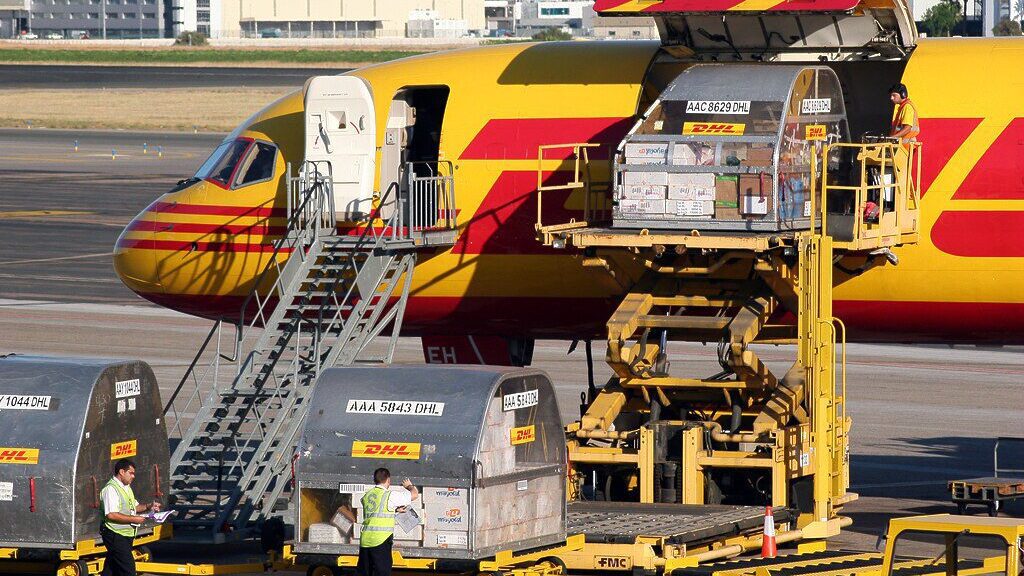
Boeing 757 DHL Loading cargo
Curimedia, CC BY 2.0, via Wikimedia Commons
Citing Western security officials, the Wall Street Journal (WSJ) reported on Monday, November 4th, that the two explosions this summer at package delivery hubs in Germany and Britain are now strongly suspected to be part of a covert Russian operation, intended as a “test run” on how to get bombs aboard commercial aircraft flying to the United States.
In July, two incendiary devices ignited spontaneously at DHL logistics hubs in Leipzig, Germany, and Birmingham, UK, prompting an international investigation to find the culprits.
The devices were reportedly electric massagers implanted with a magnesium-based flammable substance, and were sent to Britain and Germany from Lithuania. No injuries or significant damage was reported from either site.
According to the WSJ report, authorities now believe the planting of the bombs “appear[s] to have been a test run to figure out how to get such incendiary devices aboard planes bound for North America.”
Kremlin spokesman Dmitry Peskov denied the allegations, calling them “traditional insinuations from the media” and claimed no official accusation has yet been made.
Last month, Polish authorities arrested four individuals who are believed to have been involved in the “sabotage campaign,” according to the national prosecutor’s office, and international arrest warrants were sent out for two more suspects.
Poland did not reveal the name of the group it believes is responsible for the explosions, nor the country or government behind it, but the statement made it clear that the arrests were made in connection to the two DHL incidents. The statement also admits the risk of similar explosions in the future—not only on land, but also during “air transport.”
It says the four people were arrested over “parcels containing camouflaged explosives and dangerous materials” that were sent via a package delivery agency to the UK and EU countries, which then “spontaneously ignited or detonated during land and air transport.”
The Polish prosecutors came to the same conclusion as the WSJ’s sources, namely that the campaign might have been a ‘rehearsal’ for a larger operation. The group’s goal, they said, “was to test the transfer channel for this type of shipments which were ultimately to be sent to the United States of America and Canada.”
Following the report from WSJ, a UK counter-terrorism police spokesman said the investigation into the Birmingham explosion was still ongoing, and that they are “liaising with other European law enforcement partners to identify whether this may or may not be connected to any other similar-type incidents across Europe.”
